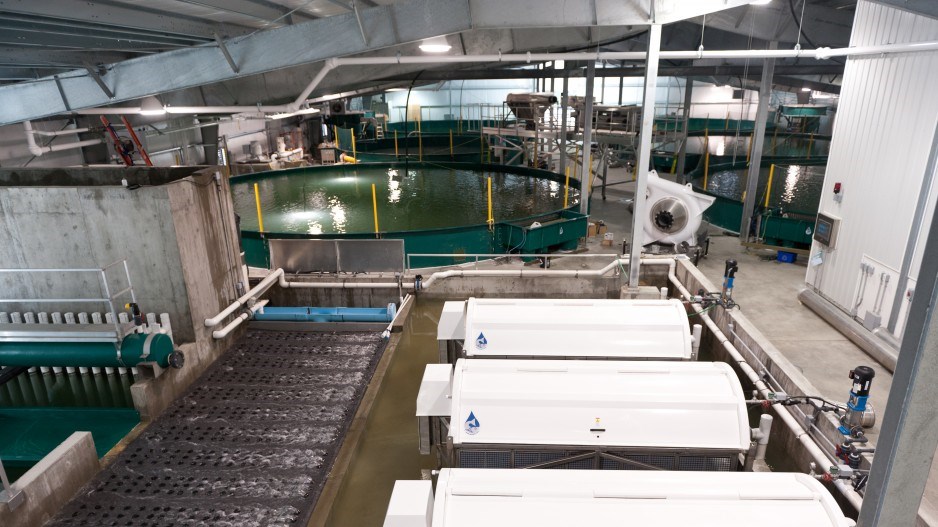An American company that plans to build a land-based salmon farm in Maine has made an offer to the Namgis First Nation to acquire a majority stake in its Kuterra fish farm in Alert Bay.
Emergent Holdings, the parent company of Whole Oceans, has made an offer to Kuterra LP to become a majority equity owner. The offer will need to be approved by the Namgis First Nation.
Kuterra LP is owned by the Namgis, which has been trying to either sell the land-based fish farm – or attract investors with the capital needed to scale it up – since 2017.
Kuterra is the only land-based salmon farm in B.C. to demonstrate commercial potential, although it is still not operating at a scale needed to repay its debt and become profitable.
Kuterra received $6 million in federal funding, as well as funding from Tides Canada and the Gordon and Betty Moore Foundation. The Namgis has subsidized operational costs.
While Kuterra reached reached break-even on cash flow, it still has outstanding debt. To raise the capital to increase its scale, Kuterra needs outside investors.
Whole Oceans recently inked a deal to buy land in Bucksport, Maine, and is planning to build a new land-based salmon farm there. But the company also has plans to build a large plant somewhere on the West Coast as well.
In a press release, Jacob Bartlett, a spokesperson for Emergent Holdings, said the deal with Kuterra would advance its American enterprise, as well as its plans for a West Coast operation.
“Kuterra's expertise in growing fish will support Whole Oceans’ operations on the East Coast,” Bartlett said. “And when Kuterra's expertise is combined with Emergent's new production systems, we'll have a strong base of operations from which we can build our West Coast capacity."
Under the proposal, the Namgis would retain a minority stake in Kuterra and would have a seat on the board of directors.
Emergent has plans for land-based fish farms on both the East and West coasts. But the land that the Namgis owns where the Kuterra fish farm is based is physically limited in its expansion capacity, so a new larger scale plant would have to be built somewhere else in B.C.
"We're going to expand to a certain extent on that site to up the production," Bartlett told Business in Vancouver. "And then we're also looking at sites down the road from Kuterra.
"We're going to try to hire as many First Nations as possible for our West Coast operations."
He said the company is looking for potential sites between Campbell River and Port McNeill. The plant proposed for Maine would have an annual production capacity of 20,000 tonnes annually for the first phase, eventually scaling up to 50,000 tonnes.
A recent financial analysis of recirculating aquaculture systems (RAS) like the one Kuterra uses assumes annual production of 3,000 to 5,000 tonnes annually as an "optimal scale," whereas Kuterra's current annual production capacity is just 250 tonnes.
The analysis, conducted for the Fraser Basin Council, assumes an industry producing 50,000 tonnes annually, with typical land-based operations producing 3,000 to 5,000 tonnes each.
Such an industry would require total capital expenditures of $1.7 billion. At that scale, the industry would generate roughly 4,000 direct jobs, GDP of $407 million and $113 million in tax revenue.
Some industry analysts have pointed out that it would make sense to locate land-based fish farms close to their markets, and the market for B.C. farmed salmon tends to be the U.S.
"B.C. is not used to competing with Florida or Wyoming in the production of salmon," the analysis by Counterpoint points out. "A new competitive reality must be recognized, and a crucial next step in attracting this industry is developing a cohesive plan for making B.C. competitive, and touting the advantages of locating here."
The Namgis will vote on Emergent’s offer July 2.




